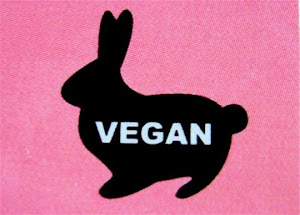We need to reduce our dependence on animal proteins. Animal protein is not a sustainable part of our diet while the population bomb of exponential growth of humans continues. Shortages of resources can only grow worse with the the strains already showing -Peak Everything is just around the corner for potable water, oil, agricultural land and so on.
Economic vegetarians believe that nutrition can be acquired more efficiently and at a lower price through vegetables, grains, etc., rather than from meat. They argue that a vegetarian diet is rich in vitamins, dietary fiber, and complex carbohydrates, and carries with it fewer risks (such as heart disease, obesity, and bacterial infection) than animal flesh. Consequently, they consider the production of meat economically unsound.
"Environmental vegetarianism is the practice of vegetarianism or veganism based on the indications that animal production, particularly by intensive agriculture, is environmentally unsustainable.
The primary environmental concerns with animal products are pollution and the use of resources such as fossil fuels, water, and land."
"The world must create five billion vegans in the next several decades, or triple its total farm output without using more land."
- Dennis Avery, Director of the Centre for Global Food Issues
This is a frightening equation considering the amount of skepticism and resistance to change demonstrated by human beings throughout the recent Global Warming debate. It habits die hard and there are powerful forces on the side of Fossil Fuels, as mentionbed in the Paul Kruigman article in the NYT's declaring that Solar Energy has reached the tipping point and needs to be encouraged.
Environmental vegetarianism can be compared with economic vegetarianism.
An economic vegetarian is someone who practices vegetarianism either out of necessity or because of a conscious simple living strategy:
- a philosophical viewpoint, such as the belief that the consumption of meat is economically unsound or that vegetarianism will help improve public health and curb starvation.
Economic vegetarians believe that nutrition can be acquired more efficiently and at a lower price through vegetables, grains, etc., rather than from meat. They argue that a vegetarian diet is rich in vitamins, dietary fiber, and complex carbohydrates, and carries with it fewer risks (such as heart disease, obesity, and bacterial infection) than animal flesh. Consequently, they consider the production of meat economically unsound.
According to the Worldwatch Institute, "massive reductions in meat consumption in industrial nations will ease the health care burden while improving public health; declining livestock herds will take pressure off rangelands and grainlands, allowing the agricultural resource base to rejuvenate.
As populations grow, lowering meat consumption worldwide will allow more efficient use of declining per capita land and water resources, while at the same time making grain more affordable to the world's chronically hungry."
To produce 1 pound of feedlot beef requires about 2,400 gallons of water and 7 pounds of grain . Considering that the average American consumes 97 pounds of beef (and 273 pounds of meat in all) each year, even modest reductions in meat consumption in such a culture would substantially reduce the burden on our natural resources."
Physicians John A. McDougall, Caldwell Esselstyn, Neal D. Barnard,
Dean Ornish, Michael Greger and nutritional biochemist T. Colin Campbell, argue that high animal fat and protein diets, such as the standard American diet, are detrimental to health, and that a low-fat vegan diet can both prevent and reverse degenerative diseases such ascoronary artery disease and diabetes. A 2006 study by Barnard found that in people with type 2 diabetes, a low-fat vegan diet reduced weight, total cholesterol, and LDL cholesterol, and did so to a greater extent than the diet prescribed by the American Diabetes Association.
Dean Ornish is one of a number of physicians who recommend a low-fat vegan diet to prevent and reverse certain degenerative diseases. Ornish is also an author of several very good books promoting his heart healthy diet principles. Having read his books, I am prejudiced on this side of the argument. The Vegetarian diet can be seen as a useful tool in staying healthy on an individual level, a societal level and it allows individuals to do something positive for the Planet's ecosystem. Individuals can stay healthy and live sustainable lifestyles and empower themselves to help save the Planet.






